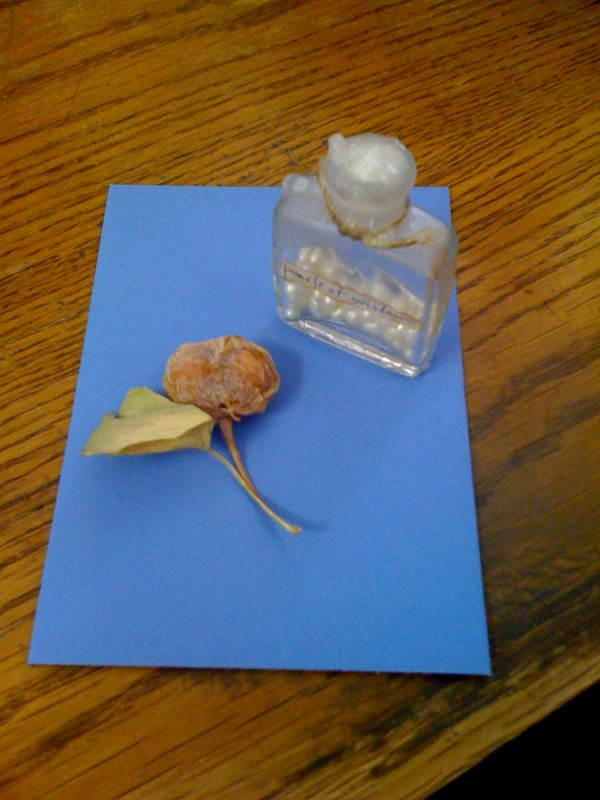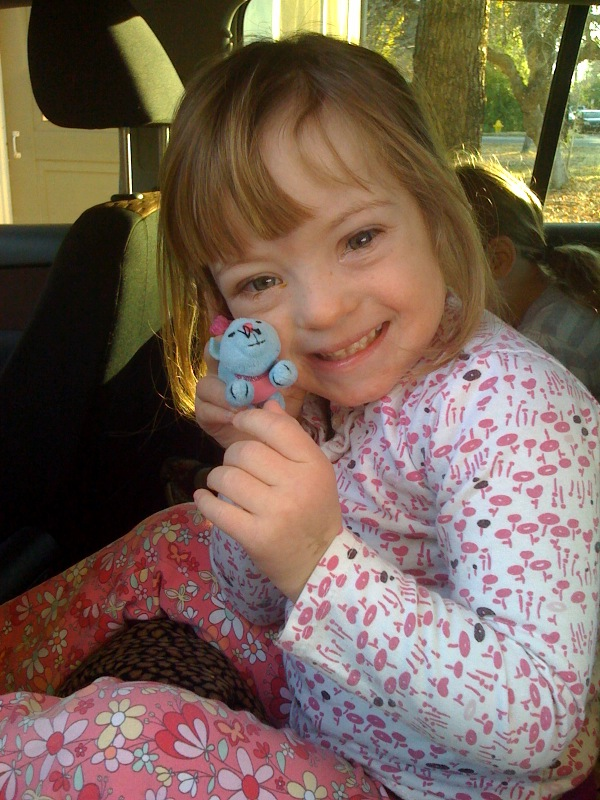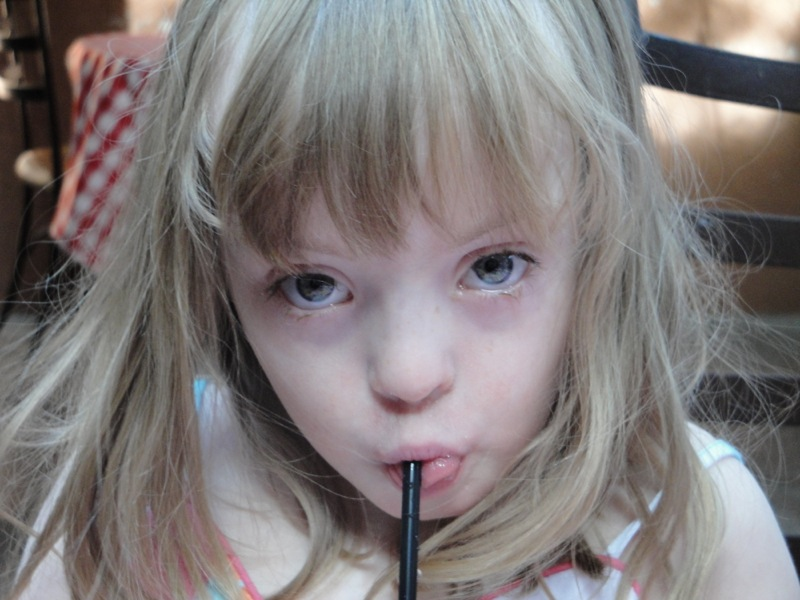
Last week, New York Times blogger Lisa Belkin posed the question, “Should Down syndrome be cured?”
I posted a link to her piece, but I didn’t fire off a response. I needed to give the whole thing some thought, I figured. This is fundamental.
The truth is that I will think about this for my entire life and never have the right answer.
But as it turns out (and as the ever-wise starrlife observed), Belkin wasn’t being fair when she raised the question.
Belkin was referring to research at Stanford University into drugs designed to boost memory in people with Down syndrome.
I know about that research — or, at least, research related to it; I actually visited Stanford a few years ago, and met with one of the doctors doing it. He was very nice (I’ve written about this a bit before on GIAPH) — showed me a power point presentation, lowered my expectations significantly, then asked if I knew anyone with a lot of money who would like to donate to his research efforts.
After I spoke with the doctor, he let me tour one of the labs (I was disappointed that they wouldn’t let me see the mice they’d managed to “give” Down syndrome, but I guess with PETA around you can never be too careful) and another very nice man introduced me around to the researchers. I showed them pictures of Sophie, who was then about 2, and the very nice man led me to the window and pointed out a row of trees, just outside the lab.
“Those are ginko biloba trees,” he said. “If you eat the fruit, it can boost your memory. Some of the parents of kids with Down syndrome pick the fruit and give it to their kids.”
I got the message loud and clear. No super-brain drugs for Sophie — no time soon, anyway.
OK.
I left the lab and stood blinking in the fall sun, then strained on my tiptoes to pick a piece of ginko biloba fruit, which I wrapped in a Kleenex and brought home. It’s sitting on the windowsill in my office, next to a bottle of “pearls of wisdom” my friend Christa gave me for Christmas two years ago.
With all due respect to a far more successful journalist, Lisa Belkin started the wrong discussion. But really, I can’t imagine that there would be much debate over whether it’s a good idea to give people with Down syndrome memory-boosting drugs. It’s not like it would cure a genetic condition or, I’d bet, even fundamentally change a personality. It would just make life a little easier. And it’s not even like these drugs are available now; the recent study Belkin wrote about confirms that.
What a ho-hum discussion.
I’m no scientist, but I think I can safely say that there will never be a cure for Down syndrome — not once a person is born. Yes, you can have an abortion and avoid ever having a kid with Down syndrome. There’s your “cure”.
And I’m not saying you should or shouldn’t do that, though I’m beyond damn glad I didn’t. I truly wish I believed in God, so that every day, I could pray to him my thanks that I have Sophie.
And therein lies the rub. I don’t want Sophie to have Down syndrome, and it’s not (not really, anyway — not only, at least) because of her intellectual disability.
The truth is that the ginko biloba — and all it implies — is the least of my worries, as a parent of a child with Down syndrome. I learned that when Sophie was 5 days old and the doctor announced she had a hole in her heart. She’s had open heart surgery twice — so far.
I catch myself staring at Sophie a lot. Less and less, it’s about her “funny” features or funnier behaviors. It’s about leukemia. I won’t look at the statistics, I don’t want to know the exact figures, but I do know that people with Down syndrome have a greater chance of developing leukemia. Recently, I learned it’s the same for diabetes. And a lot of other physical maladies I don’t want to know about.
It’s not that I don’t want a kid with intellectual disabilities (although trust me, it took me a long time to be able to say that honestly, and there are days when it’s still a bit of a lie). It’s that I want her to be around, and healthy. I don’t want her to suffer. I don’t want her bald in a hospital bed. I don’t want her to die.
It’s a lot easier to have an intellectual debate over how people with cognitive challenges fit into our society than it is to have the heart-wrenching discussion about the realities of my kid’s physical health.
A pill to “cure” Sophie’s heart from springing another leak? A vaccination to keep her from getting cancer? Bring it on, people. Bring it on.














